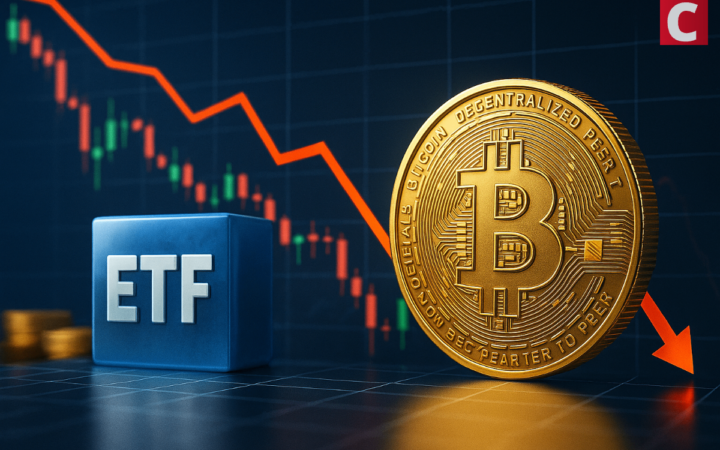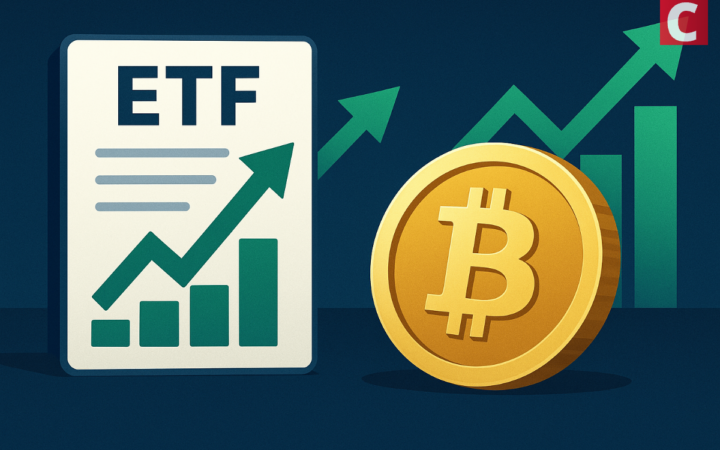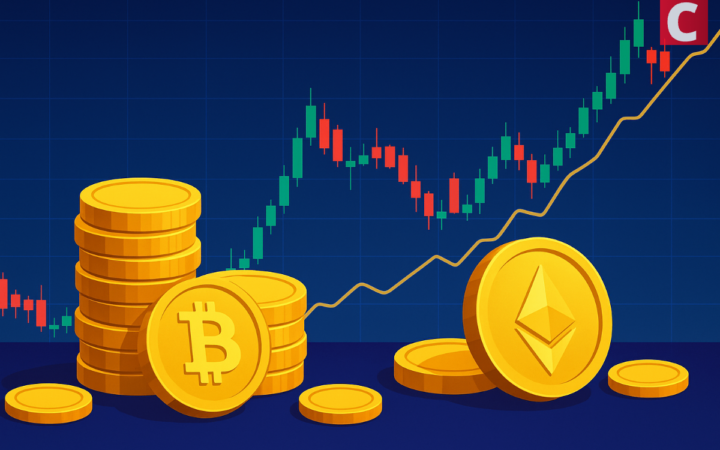
July 15th, 2025
Explore the latest Bitcoin ETF news. Stay informed on market trends, the most recent updates and regulatory changes in the evolving world of cryptocurrency and finance.

The Royal Government of Bhutan has sold 512.84 BTC worth $59.47 million over the past four days, bringing its total Bitcoin sales to 650 BTC.

For Bitcoin (BTC), the CVD data reveals that heavy sell-side pressure is being absorbed, hinting at a stealth accumulation by large players.

US spot Bitcoin ETFs saw their first significant outflows on July 1, totaling $342 million, ending a 15-day inflow streak.

Bitcoin flirts with $107K as analysts highlight unrealized profits, hinting at room for growth toward $140,000 for the leading digital asset.

The Norwegian government plans to temporarily ban the operations of Bitcoin miners in its region to conserve power usage.

Retail traders are split on its future trajectory with Bitcoin price expected to swing 10% in either direction, either to $94K or $114K.

Bitcoin ETFs saw a renewed inflow of $386 million on Monday, coinciding with a 4% BTC price increase to $110K.

The anonymous dentist might have lost potentially millions of dollars on video games.

Explore how President Donald Trump’s Truth Social is venturing into cryptocurrency with the proposed Truth Social Bitcoin ETF.

Bitcoin ETFs saw over $1.2 billion in outflows across three days as investors aggressively locked in profits.

Bitcoin whales have moved from accumulation to distribution, with Glassnode’s Accumulation Trend Score dropping to 0.4, indicating increased selling pressure.

Bitcoin Pizza Day marks the first real-world Bitcoin purchase, showing how 10,000 BTC for pizzas in 2010 is now worth over $1.1 billion.

Strategy has acquired $764 million worth of Bitcoin, bringing its total holdings to 576,230 BTC amid growing BTC yield.

Bitcoin has surged past $100,000 for the first time in months, reigniting bullish sentiment as all UTXO age bands are now in profit.

Bitcoin price surged by 4.5%, breaking above $102,000, leading to nearly $900 million in total liquidations over the past 24 hours.
Exchange-traded fund (ETF) tracks the performance of underlying assets with each share traded by the fund being backed by the value of these assets.
A Bitcoin ETF is a financial product that allows investors to engage with the Bitcoin market without the need to directly own or store the cryptocurrency. This means that one can invest in Bitcoin-related assets or futures contracts, with shares being traded on conventional stock exchanges, instead of trading the crypto directly.
There are several types of Bitcoin ETFs, including spot Bitcoin ETFs that hold actual Bitcoin and directly mirror its price movements providing straightforward exposure to the cryptocurrency; Bitcoin futures ETFs that invest in Bitcoin futures contracts rather than the cryptocurrency itself; and hybrid Bitcoin ETFs that combine investments in both spot Bitcoin and futures contracts.
On January 10, 2024, the SEC approved 11 spot Bitcoin ETFs. A spot Bitcoin ETF tracks the real-time price of Bitcoin, while a Bitcoin futures ETF provides exposure to the price changes of Bitcoin futures contracts through publicly traded securities.
Determining the “best” crypto ETF can depend on your investment goals, the level of risk that you’re ready to accept, and individual preferences. However, here’re some ETFs that you might consider based on performance, assets under management, and overall reputation. They include: ProShares Bitcoin Strategy ETF (BITO), Grayscale Bitcoin Trust (GBTC), Purpose Bitcoin ETF (BTCC), Bitwise 10 Crypto Index Fund (BITW), Valkyrie Bitcoin Strategy ETF (BTF).
For the majority of investors, purchasing shares in an ETF is significantly easier than managing cryptocurrency directly. When investing in crypto directly, you must set up a digital wallet, choose a reliable exchange, link it to your bank account, and navigate the platform to buy and sell digital assets. When it touches upon Bitcoin ETF, you can skip the majority of this.
Fidelity’s ETF, the Fidelity Advantage Bitcoin ETF (FBTC), primarily invests in Bitcoin held in custody by Fidelity’s digital assets arm. Like other Bitcoin ETFs, its purpose is to provide a secure and simplified way for investors to interact with the crypto market without dealing with the complexities of buying and storing Bitcoin directly.
The Bitx Bitcoin ETF invests in cash-backed Bitcoin futures contracts traded on the Chicago Mercantile Exchange, which is regulated by the Commodity Futures Trading Commission. As a non-diversified fund, it concentrates on a limited range of assets, potentially leading to higher risk compared to diversified investments. Additionally, futures contracts come with risks such as contango or backwardation, which can impact the ETF’s performance relative to Bitcoin’s price. However, the fund benefits from regulatory oversight and transparency provided by the Commodity Futures Trading Commission.